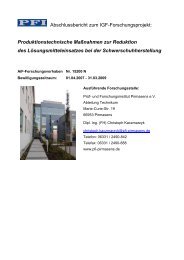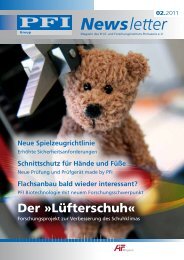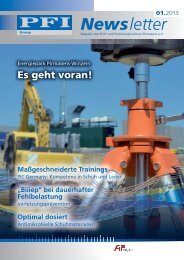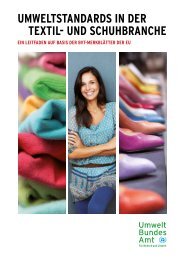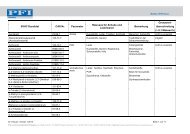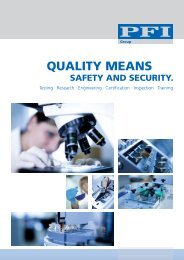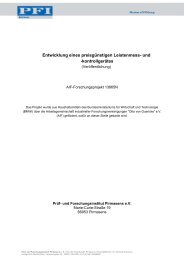Here - PFI Group
Here - PFI Group
Here - PFI Group
You also want an ePaper? Increase the reach of your titles
YUMPU automatically turns print PDFs into web optimized ePapers that Google loves.
Changes Concerning<br />
the Test organisms<br />
Changes to the standard concern mainly the test organism.<br />
In place of the gram-negative test organism<br />
Klebsiella pneumoniae used in previous versions of the<br />
standard, the latest version stipulates the closely related<br />
organism Escherichia coli, which is easier to handle<br />
in the laboratory. Nevertheless, tests can only be performed<br />
by trained personnel in a Category 2 microbiological<br />
safety laboratory because both organisms are<br />
potential pathogens.<br />
The failure to specifically address the gram-positive<br />
bacteria differing in their cell structure in the course of<br />
the revision process remains a drawback. In the stated<br />
objective of the revised standard, mention is made of<br />
its use for a wide range of microorganisms, meaning<br />
that the use of additional or other microorganisms is<br />
permissible.<br />
<strong>PFI</strong> therefore continues to offer the existing, accredited<br />
test method with the test organisms Staphylococcus<br />
aureus (gram-positive bacterium) and either Klebsiella<br />
pneumoniae or Escherichia coli (gram-negative<br />
bacterium).<br />
Although the ASTM E2149 standard test method for<br />
determining the antibacterial activity of antimicrobial<br />
treated specimens was updated in 2010, only modest<br />
changes were actually made.<br />
01.2011<br />
Magazine of the Test and Research Institute Pirmasens<br />
Enumeration of viable microorganisms:<br />
Each colony (spot) corresponds to a viable<br />
bacterial cell in the original sample<br />
Participants in a seminar on this and other test methods<br />
for determining antimicrobial efficacy towards<br />
bacteria and microfungi, held in late May at the International<br />
Shoe Competence Center in Pirmasens, were<br />
able to gain a deeper insight into this topic.<br />
Further information:<br />
Diplom Biologin Michaela Würtz<br />
Phone: +49 6331- 24 90 550<br />
E-Mail: michaela.wuertz@pfi-germany.de<br />
35



